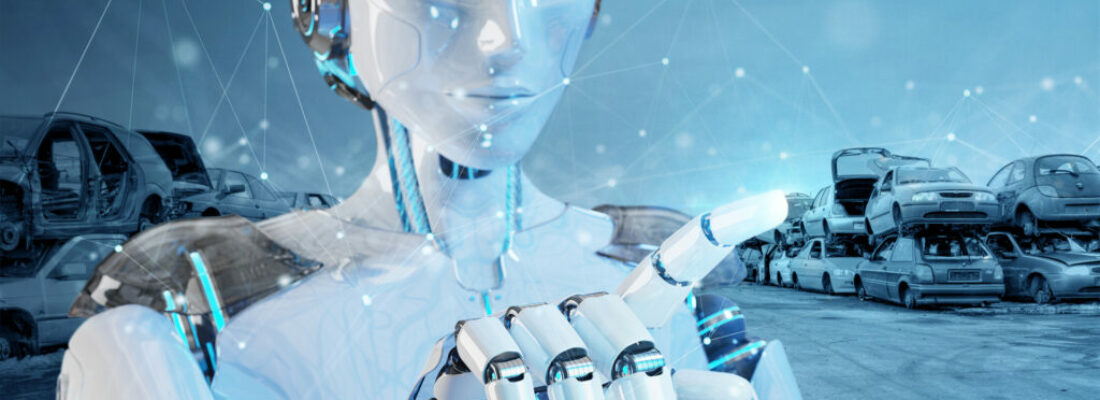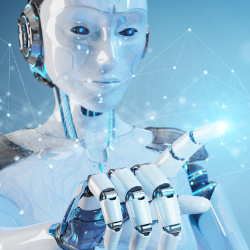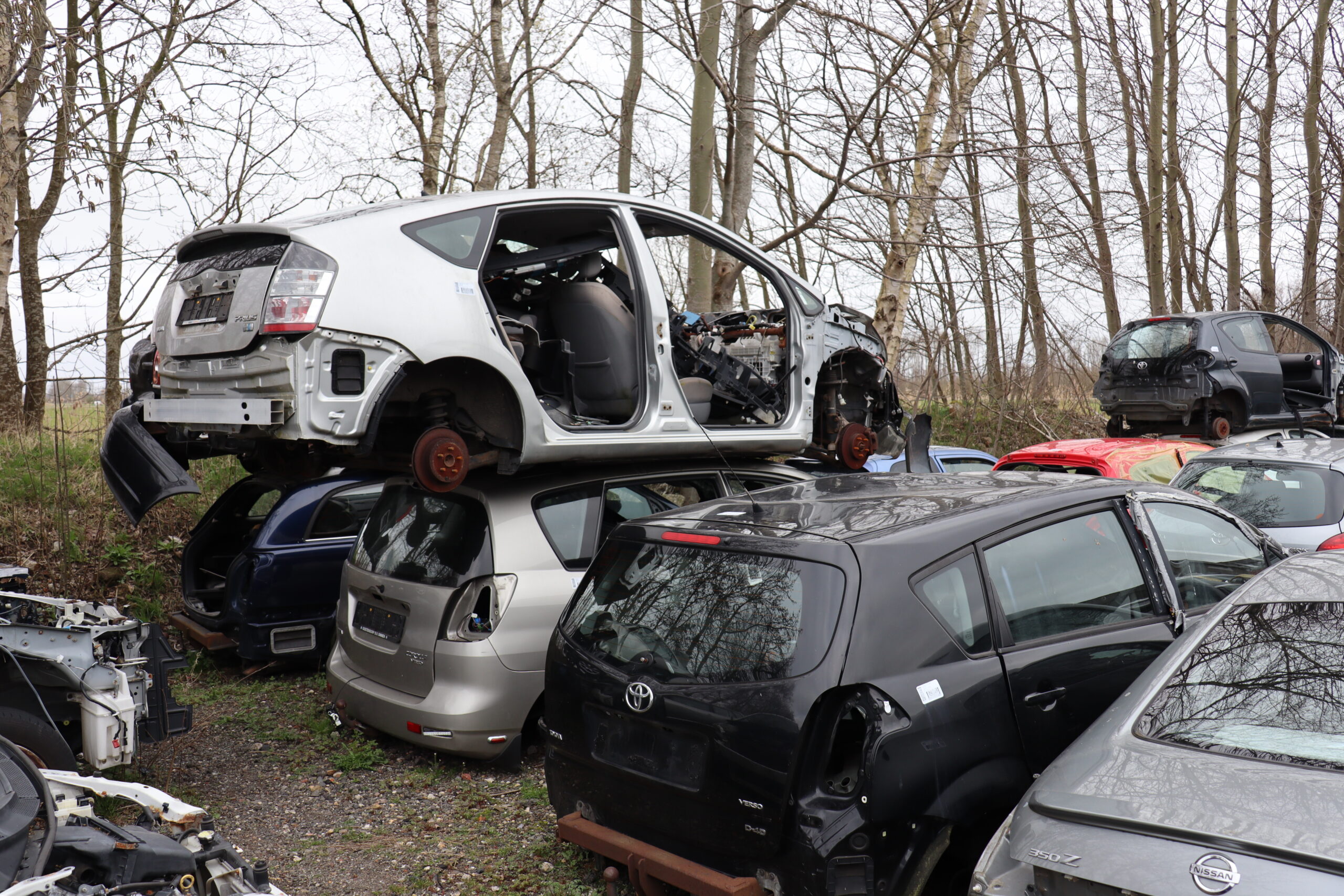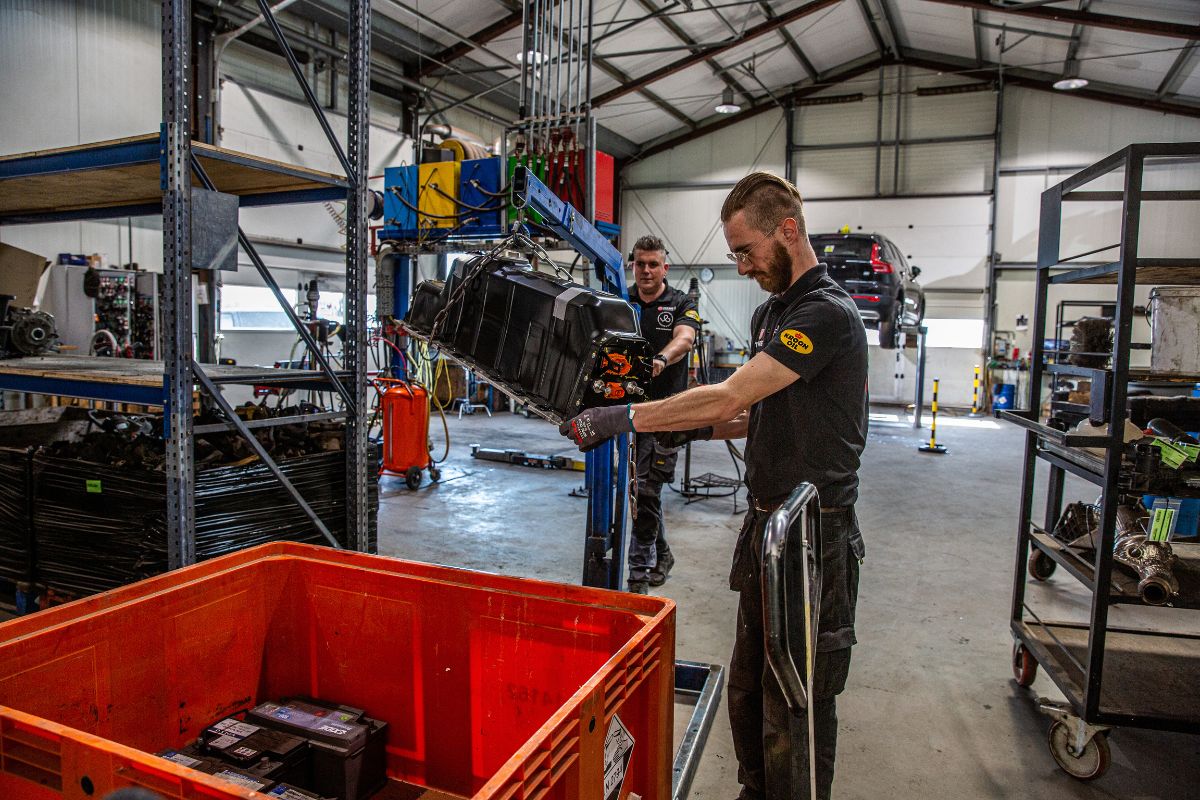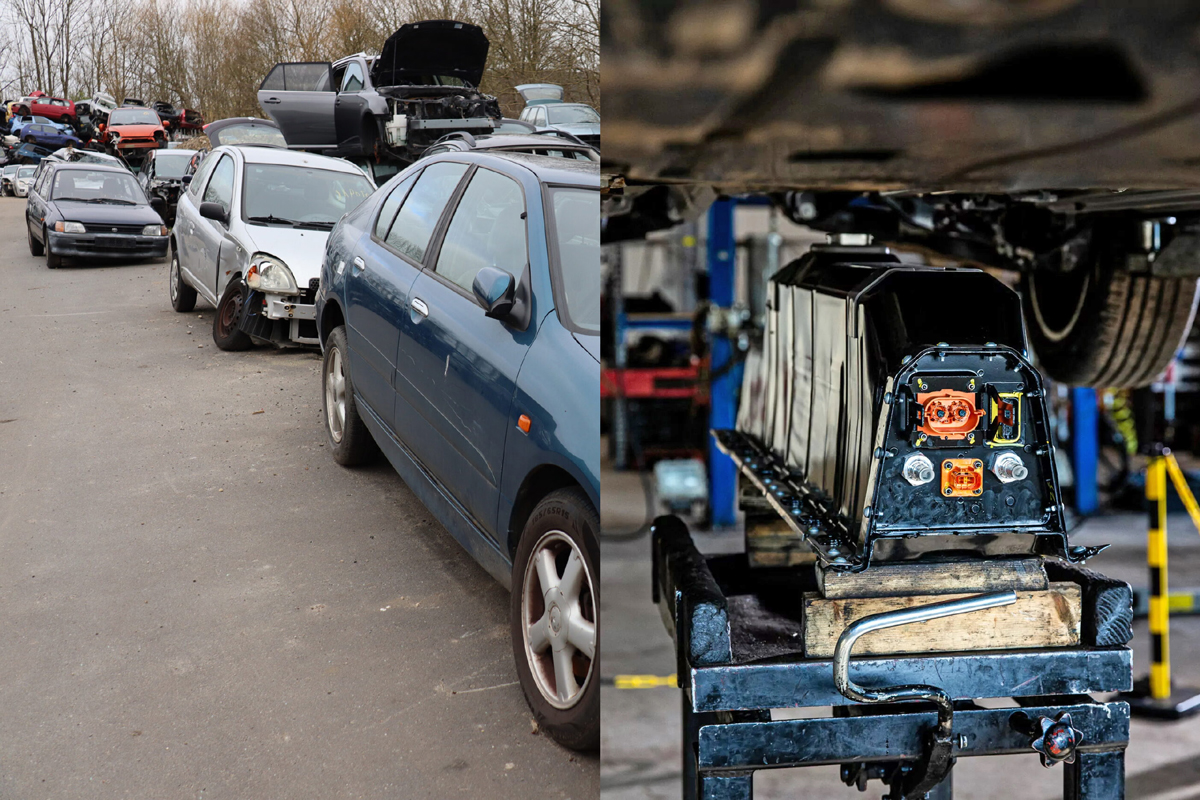Prominent figures such as Tesla founder Elon Musk and physicist Stephen Hawking have warned that artificial intelligence is “the biggest existential risk there is”. However, before smart robots take over our lives, they will first make our lives easier, for instance at the automated shredder company.
Tekst Jens Holierhoek
Fotografie Adobe stock. Image editing Klaas Jan Woudsma.
Artificial intelligence – a threat or a blessing?
Figures no less than Tesla founder Elon Musk and the physicist Stephen Hawking, who died in 2018, made a striking claim in 2017: “Highly advanced artificial intelligence is a threat to humanity.” According to various scholars and pioneering thinkers, there is a chance that artificial intelligence will become so intelligent that it will outperform and compete with its inventors. Or taken to the extreme, it will destroy them. According to Musk, a regulatory institute should be set up that oversees the development of artificial intelligence.
Feed Oscar a banana skin or a plastic cup and he can tell the difference without a single mistake. That’s because Oscar is the rubbish bin of the future. Thanks to his camera and his capacity to learn, Oscar can sort any rubbish given to him into two bags, recyclable and non-recyclable. We will increasingly see smart assistants such as Oscar in our homes and offices. However, we will also see them in the service sector, on the roads (self-driving cars) and in industry. The simple rubbish separator, just like frequently-used virtual assistants by Apple (Siri) and Amazon (Alexa) are just the start. The most important term in tomorrow’s world is ‘artificial intelligence’, also known as ‘AI’. Artificial intelligence represents the capacity of a machine to imitate intelligent human behaviour.
The robots are coming
Artificial intelligence will evolve so much over the coming years that some people even talk of an ‘automation revolution’. A study by McKinsey Global Institute claimed that intelligent agents and robots will replace up to 30 per cent of jobs around the world by 2030. Cashiers will become smart scanners and bus drivers will make way for self-driving buses. Factory workers, customs officers and pizza deliverers will be gradually exchanged for robots and automated processes.
A study by McKinsey Global Institute claimed that intelligent agents and robots will replace up to 30 per cent of jobs around the world by 2030.
Human traits
Robots are already perfectly capable of sorting objects. They drive fully automatically around warehouses or sort rubbish in recycling plants. Thanks to cameras, they can learn how to recognise objects using deep learning algorithms. This allows them to pick out tins, or glass and plastics, from a waste heap at lighting speed. Naturally, the first smart sorting system has already made an appearance in the car recycling industry. Finnish company ZenRobotics is a leading manufacturer of smart recycling robots. The company was founded in 2007, and you can still almost call it a startup, but the principles behind its robots go back much further. Fellow founder and computer scientist Harri Valpola based his company on twenty years of research into neurobiology and machine learning. He devised robots based on the human brain that make waste recycling extremely efficient. One of ZenRobotics’ products is the ‘Heavy Picker’. This is a 1.8-metre long conveyor belt from which three robotic arms pick and sort scrap metal at a rapid pace. They impeccably detect aluminium, stainless steel, copper, brass and zinc. Furthermore, they look at the colour and shape. The robots can also be trained to recognise objects, from motors to wiring or residues. In addition, the Heavy Picker is a hard worker, as it can make 6,000 ‘picking movements’ per hour when it is running at full speed. “Robots with artificial intelligence can sort just as well as humans, only faster and more safely. Scrap metal is often heavy and sharp, which means that robots are perfect for improving safety. They can also sort large and heavy fractions, which reduces the need for shredding materials” according to Janica Johansson from ZenRobotics. The scrap metal sorting robots made by ZenRobotics run on ZenBrain. This is artificial intelligence software that analyses sensor data in real time and means the robots can think while they operate.
“Artificial intelligence makes it possible for robots to identify objects on the basis of a range of characteristics, not just size or density”
For Johansson, the major difference to traditional sorting machines is that her company’s smart robots can be trained in different sorting tasks and can even be trained to sort different materials or fractions. “Artificial intelligence makes it possible for robots to identify objects on the basis of a range of characteristics, not just size or density”
Autonomous cranes
Lorenzo Bacchetti from the Italian company Danieli Centro Cranes, a prominent global manufacturer of shredding machines, said that artificial intelligence will completely automate scrap yards. According to Bacchetti, it will start when lorries, which will be self-driving in the future, arrive with the scrap metal. The loads will be scanned using a camera. This can be a camera held by an employee, namely a mobile phone with a special app, but also a camera system attached to a crane or another high point. The biggest advantage of this bird’s eye view is that you can look into an open container from above. By connecting the photos taken or the moving images to software, the system is able to immediately classify the materials.
After further sorting using the rapid and smart Heavy Pickers by ZenRobotics, for instance, laser scanners and cameras jointly determine the volume, density and weight of the sorted material in the dumper container. This information can be used to specify the best smelting conditions. The combination of cameras, laser scanners, smart sensors and intelligent software provides a complete system with autonomously operating cranes. They use large magnets to skim back and forth over the scrap metal and identify where everything is.
The advantage of automatic classification is that it removes the human factor, Danieli Centro Cranes emphasises. Warnings can also be given immediately if the scrap metal contains any impurities or hazardous items. The use of artificial intelligence in the recycling industry gives you among other things a real-time inventory of your material, using 3D mapping. Furthermore, the work becomes safer for employees and fewer staff are needed, said Bacchetti.
Man versus machine
A sci-fi scrap yard which only has robotic cranes silently hovering back and forth is not on the horizon for the moment. Human hands will remain visible for the time being, Johansson predicts: “Robots will not completely replace human labour, but the work will change in the future when certain manual processes are done by robots. However, robots also need maintenance and operators, so for the time being, there will still be a need for humans.” Johansson also stressed that robotisation is unavoidable in the recycling industry: “Smarter technologies are essential for meeting the increasing recycling percentages in the coming years.” Johansson does not want to reveal which smart robots ZenRobotics will create in the future, but there seems to be scope for intelligent machines that can handle battery packs and electric cars. “We only have the Heavy Picker in our portfolio for scrap metal at the moment. However, there will be a demand for dismantling robots, that are able to open battery packs, for instance. Johansson, just like Bacchetti, also thinks that robots will be able to work together much better in the future, as we are already moving in that direction. “Different robots with technologies that complement each other already provide a high level of automation”, emphasised Johansson. In the distant future, will AI robots take over the entire scrap yard, as Bacchetti would lead us to believe? “It’s currently impossible to say how smart the machines will become. What is certain is that the sensors are constantly evolving. The identification of waste flows is improving considerably, which means they can become more complex”, concluded Johansson.
